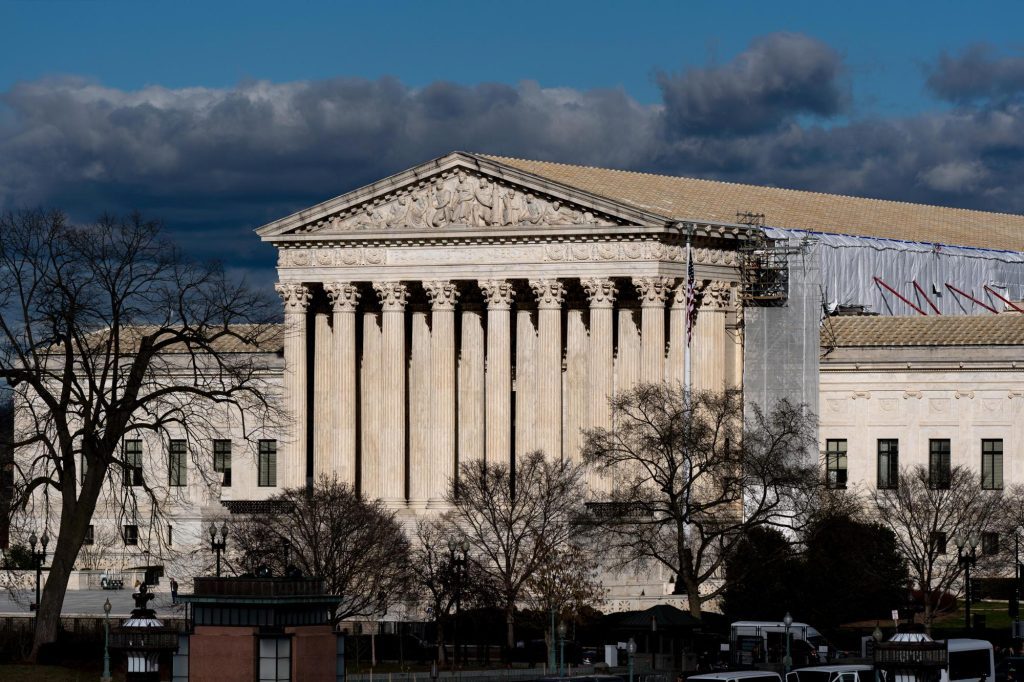By LINDSAY WHITEHURST (Associated Press)
WASHINGTON — The Supreme Court will consider Wednesday when doctors can provide abortions during medical emergencies in states with bans enacted after the high court’s sweeping decision overturning Roe v. Wade. abortions The case arises from Idaho, one of 14 states that currently prohibit abortion at all stages of pregnancy with limited exceptions. It is the first time the Supreme Court has reviewed a state ban since Roe was overturned.
The Biden administration argues that even in states where abortion is banned, federal health care law mandates that hospitals must be allowed to terminate pregnancies in rare emergencies where a patient’s life or health is at serious risk.
Idaho argues its ban includes exceptions for life-saving abortions, but allowing it in more medical emergencies would turn hospitals into “abortion enclaves.” The state contends that the Biden administration is misusing a health care law meant to ensure patients aren’t turned away based on their ability to pay.
The Supreme Court has allowed the Idaho law to go into effect, even during emergencies, as the case played out.
Dueling protests were taking shape outside the court before the start of arguments on Wednesday. “Abortion saves lives,” read signs displayed by abortion rights supporters. Opponents displayed a sign that read, “Emergency rooms are not abortion clinics.” Doctors have said Idaho’s abortion ban has already affected emergency care. More women whose conditions are typically treated with abortions must now be flown out of state for care, since doctors must wait until they are close to death to provide abortions within the bounds of state law. Meanwhile, complaints of pregnant women being turned away from U.S. emergency rooms after the Supreme Court overturned Roe v. Wade, according to federal documents obtained by The Associated Press.
Anti-abortion groups blame doctors for mishandling maternal emergency cases. Idaho argues the Biden administration overstates health care woes to undermine state abortion laws.
The justices also heard another abortion case this term seeking to restrict access to abortion medication. It remains pending, though the justices overall seemed skeptical of the push.
The Justice Department originally brought the case against Idaho, arguing the state’s abortion law conflicts with the 1986 Emergency Medical Treatment and Active Labor Act, known as EMTALA. It requires hospitals that accept Medicare to provide emergency care to any patient regardless of their ability to pay. Nearly all hospitals accept Medicare. spiked A federal judge initially sided with the administration and ruled that abortions were legal in medical emergencies. After the state appealed, the Supreme Court allowed the law to go fully into effect in January. The Supreme Court is expected to rule by the end of June.Get more Colorado news by signing up for our daily Your Morning Dozen email newsletter.
Dueling protests are taking shape outside the Supreme Court as the justices prepare to consider an abortion case. The case being heard Wednesday will determine when doctors can provide abortions during medical emergencies in states with bans enacted after the Supreme Court’s sweeping decision overturning Roe v. Wade. The case comes from Idaho, which is among 14 states that ban abortion at all stages of pregnancy with limited exceptions. The Biden administration argues federal health care law says hospitals must be allowed to terminate pregnancies in rare emergencies when a patient’s life or health is at serious risk. Idaho contends its ban has exceptions for life-saving abortions.
The justices also heard another abortion case this term seeking to restrict access to abortion medication. It remains pending, though the justices overall seemed skeptical of the push.
The Justice Department originally brought the case against Idaho, arguing the state’s abortion law conflicts with the 1986 Emergency Medical Treatment and Active Labor Act, known as EMTALA. It requires hospitals that accept Medicare to provide emergency care to any patient regardless of their ability to pay. Nearly all hospitals accept Medicare.
A federal judge initially sided with the administration and ruled that abortions were legal in medical emergencies. After the state appealed, the Supreme Court allowed the law to go fully into effect in January.
The Supreme Court is expected to rule by the end of June.
Get more Colorado news by signing up for our daily Your Morning Dozen email newsletter.



